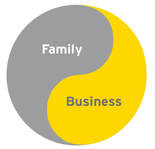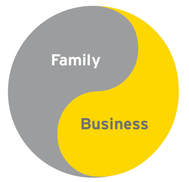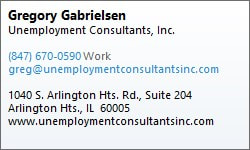
Emotions and inability to separate business and family. Family problems and dynamics will affect the business. Divorce, separations, health or financial problems also create difficult political situations for the family members. Emotions can interfere with business decisions, and trying to make one another happy constantly is unrealistic.
Tunnel vision. Lack of outside opinions and diversity on how to operate the business. No-one, like a business coach, to ask the tough questions.
Role confusion. Roles and responsibilities (for active and passive family members) must be clearly defined. Absence of clear written policies and business norms for family members. Going from family character to business professionalism can create confusion.
Paternalistic and Overly Conservative. Control is centralized and influenced by tradition instead of good management practices. Older family members try to preserve the status quo and resist change. Especially resistance to ideas and change proposed by the younger generation.
Communication problems. Usually provoked by role confusion, emotions (envy, fear, anger), political divisions or other relationship problems create barriers to effective communication.
Retirement and estate planning. Long term planning to cover the necessities and realities of older members when they leave the company.





 RSS Feed
RSS Feed


